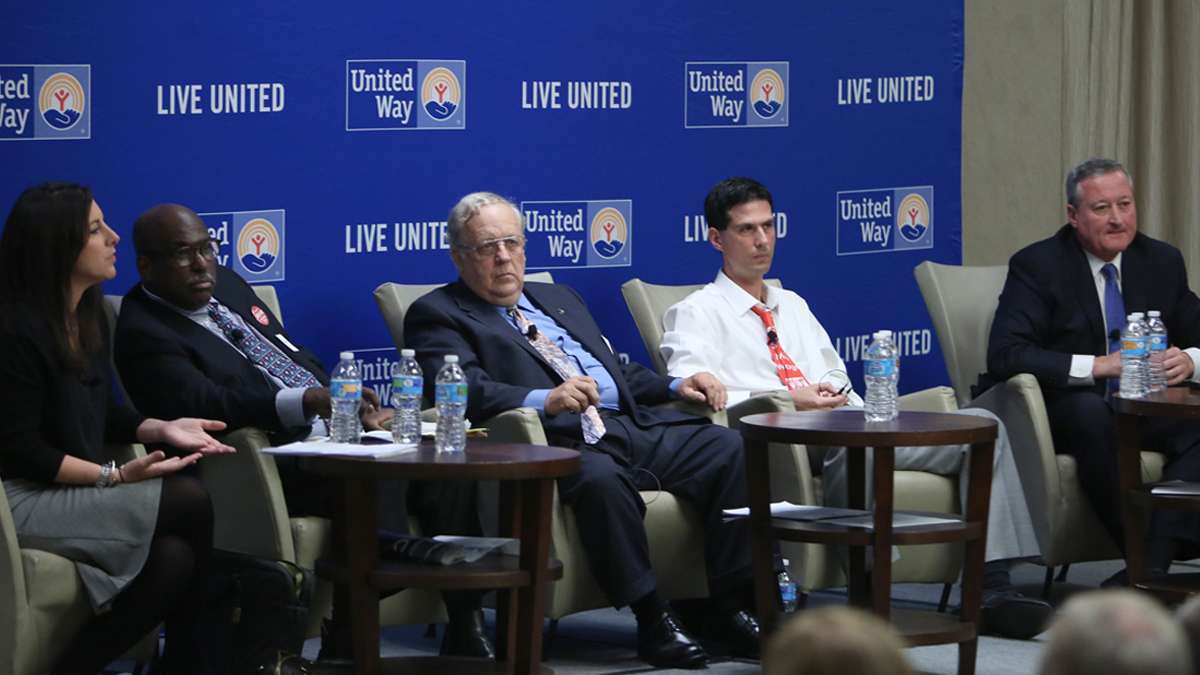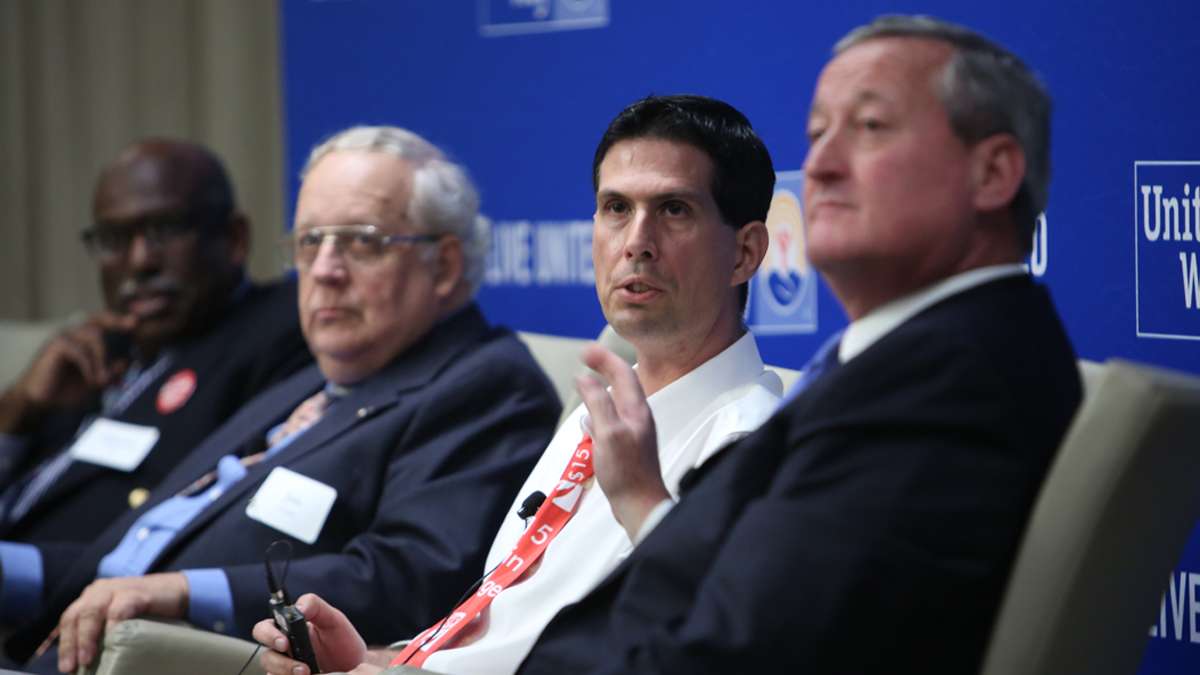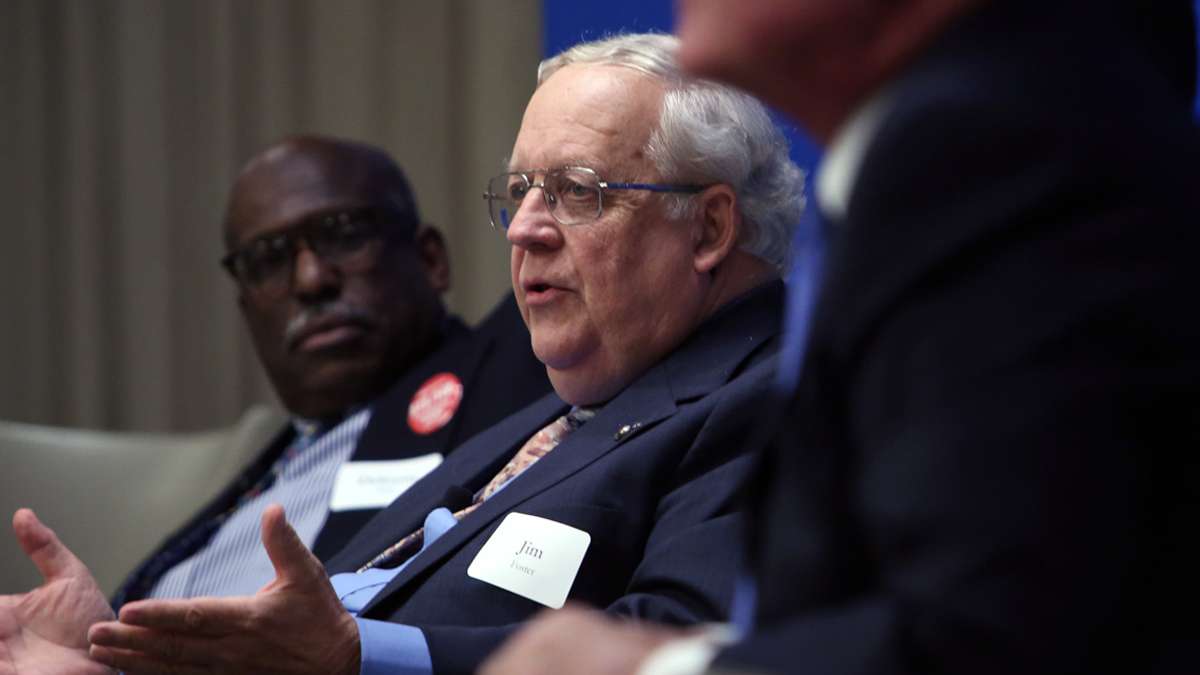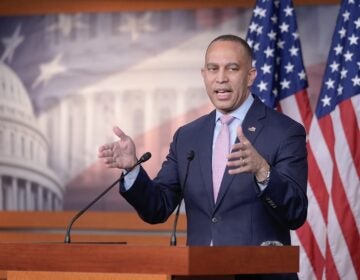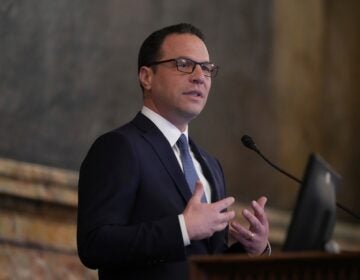Philly’s third-party candidates bring passion to quixotic quest for City Hall
ListenIt has been more than 22 years since an independent candidate ran a credible campaign for mayor of Philadelphia.
The year was 1983. The candidate was attorney Thomas Leonard, a longtime Democrat who dropped out of the primary to run against Wilson Goode, the man would be elected the city’s first black mayor.
A lot has changed since then, except for the odds of independents taking the big office in City Hall. They’re still really steep.
Next week, there will be three third-party mayoral candidates on the ballot in Philadelphia: Jim Foster, Osborne Hart and Boris Kindij.
Why do independents run?
But first, let’s take a closer look at that hot 1983 mayor’s race.
“[Leonard] waited and he came in late as an independent which angered the Republican candidate because basically it split the white vote,” recalled Randall Miller, a professor of history at St. Joseph’s University. “This is an unusual circumstance where race more than any other factor played into the decisions of people to run and how they would attract support.
“We don’t have any of that in 2015,” he said.
Interestingly, there were about 37,000 “other party” voters in Philadelphia the year Leonard ran. Today, there are three times as many, just over 100,000 (roughly the same number of registered Republicans in the city). In fact, independent voters are on the rise across the U.S. — a Gallup poll released in January found they now make up 43 percent of the electorate on average.
However, Philadelphia politics continues to be dominated by a powerful Democratic machine, nearly 800,000 registered voters strong. Organization and money are essential for candidates in races like this one when most voters stay home. Only 27 percent of voters showed up for the May primary.
So why do independent candidates bother running? To get our attention, Miller said.
“They’ll say they expect to win, and they want to win, but they want to get their particular issue into the public mind,” he said. “And an election is a way to do it.”
‘I hate injustice’
If Miller is right and independent candidates are running to highlight one particular issue, Kindij’s is obvious. It’s printed right on the bright red tie he wears to almost every interview; it says “$15 minimum wage” in white letters.
Kindij was born in Croatia and fled during that country’s war of independence in the early 1990s. Today, he lives in South Philly and works as a property manager.
“I hate injustice and unfairness, and that’s the main reason why I want to do something for Philadelphia, for its people,” he said in a recent interview on WHYY’s Radio Times. “Around 26 percent of citizens live in extreme poverty.”
One way independents like Kindij can get these messages out is by participating in debates with the major party candidates.
However, they have been included in only one of four debates this fall, hosted by the United Way last month.
‘Corruption to the highest level’
None of them is angrier about it than Jim Foster who has mounted an email campaign against organizations he says are “complicit” with “Philadelphia’s gangster government,” as he called it in one message. (WHYY/NewsWorks is among those to have provoked Foster’s ire, as the news organization did not invite the independent candidates to its debate on Oct. 12.)
Foster lives in Germantown, the same neighborhood where he grew up and now publishes a local newspaper called the Independent Voice. Germantown, which once had one of the city’s busiest commercial corridors, is now a shell of its former self, he said.
“What did it? Corruption! Corruption to the highest level,” he said during the United Way debate.
Foster is running to expose decades of what he calls “reckless waste” in city government Among his proposals is cutting Philadelphia’s 17-member City Council down to just 10 and getting more money for the city’s cash-strapped school district by spinning off all of its unused real estate into a trust to be sold.
Foster’s other mission is to challenge Philadelphia’s “one-party machine,” something the Republican Party has failed to do.
‘Our victory is that working people get a voice’
That brings us to the final third-party candidate.
Osborne Hart, who works nights stocking shelves at Walmart, is running on the Socialist Workers’ Party ticket.
Late last week, he and his friend, John Staggs, who is running for City Council, knocked on doors together in Northeast Philadelphia. The working-class neighborhood is home to just the kind of voters they’re targeting.
Of all three independent mayoral candidates, Hart is the most upfront about his odds and why he’s running: it’s a good reason to go door-to-door and talk about workers’ safety and the need to raise the minimum wage — the issues he’s passionate about — and that’s enough for him.
“Our victory is that working people get a voice in the elections and point to the directions that we’ve been talking about,” he said.
Hart can take solace that Democratic nominee Jim Kenney, the likely winner of the mayor’s race, is on the record supporting a $15 minimum wage.
WHYY is your source for fact-based, in-depth journalism and information. As a nonprofit organization, we rely on financial support from readers like you. Please give today.



